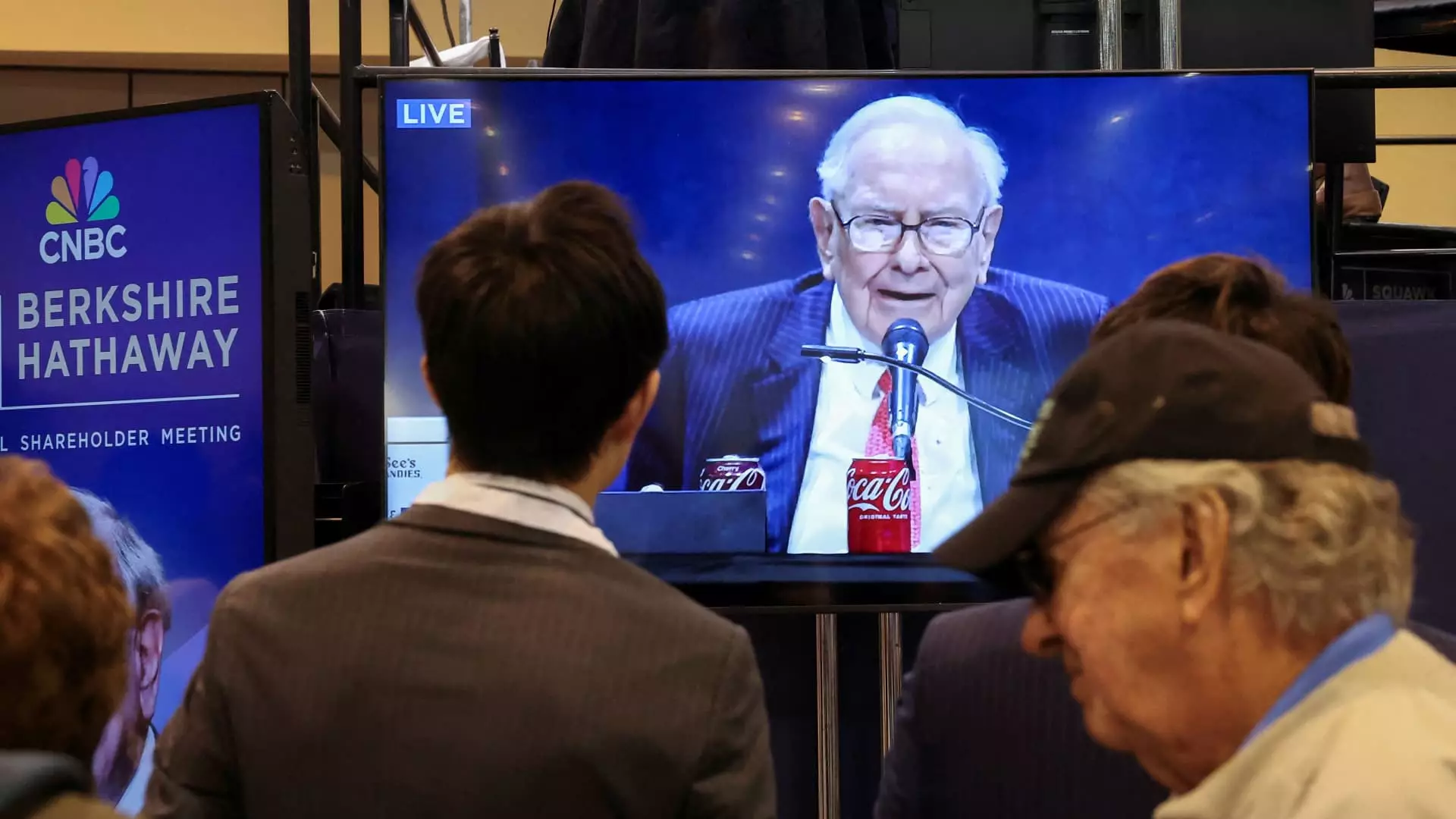In a rather unexpected twist, Warren Buffett, often dubbed the “Oracle of Omaha,” announced his impending retirement as CEO of Berkshire Hathaway during the company’s annual meeting. After an extraordinary 60-year journey that saw him transform a once-failing textile mill into a colossal conglomerate worth nearly $1.2 trillion, the implications of this transition have sent waves through the investment world. As the dust settles from this monumental announcement, it is imperative to analyze what this means for the company’s future and the broader investment landscape ruled by Buffett’s steady hand.
Transitioning to Abel: A Mixed Bag of Emotions
Greg Abel, the newly appointed president and CEO set to take the helm in January 2026, has garnered a cloud of speculation since his promotion. While some investors express optimism about Abel’s capabilities based on his experience overseeing non-insurance operations, others remain skeptical. The question is not whether Abel is qualified, but whether he can fill the gargantuan shoes of a man who redefined investment success. The shrouded anxieties surrounding any leadership change can feel amplified in a company so profoundly interwoven with Buffett’s identity.
Investors appeared to react immediately, with Berkshire’s Class B shares declining by 2.9% in premarket trading just hours after the announcement. This decrease, even after hitting an all-time high only days prior, illustrates a cautious sentiment creeping into the market. The curiosity to see a new captain navigate the high seas of corporate strategy raises questions about stability and vision.
Buffett’s Legacy: More Than Just a Safety Net
Buffett has emphasized the importance of the company’s culture and strategic principles over the years, effectively creating an environment immune to significant upheaval. With Abel at the helm, analysts like Brian Meredith believe operational changes will be minimal. This raises the stakes in assessing how much of Buffett’s wisdom permeates the organization beyond his direct influence. This transition invites a consideration of whether inheriting a robust corporate culture will be enough for Abel to maintain the fragile balance between innovation and tradition.
Furthermore, the upheaval appears to arrive concurrently with troubling first-quarter results revealing a 14% decline in operating earnings, exacerbated by a staggering 48.6% drop in insurance-underwriting profit due to catastrophic losses. These figures present a tempestuous backdrop for Abel, suggesting that the challenges he faces are not merely philosophical but also deeply pragmatic.
Stock Market Implications: Navigating Uncertainty
Despite market fluctuations, Buffett’s track record has cultivated a cautious loyalty among investors. Market positioning shows that investors are genuinely torn: Berkshire Hathaway has outperformed the S&P 500, boasting a nearly 19% rise this year. Yet, the current response to Buffett’s announcement signals a blend of anxiety about upcoming changes and an inherent trust built over decades. It’s a precarious tightrope walk as investors search for safe havens amid broader market uncertainties.
Berkshire’s unique blend of defensive strategic placement—especially its expansive insurance empire—coupled with its unmatched balance sheet, is usually a bedrock for security. But with Buffett’s departure on the horizon, there’s a palpable fear that operational execution could shift direction. As stock prices lumber beneath previous highs, the question remains whether the company’s defensive nature can sustain its health during this transitional phase.
The Future of Berkshire: Is This a Catalyst for Change?
As much as the investment community reveres Buffett, it must confront the unavoidable reality that change can be a double-edged sword. The transition away from Buffett promises not just continuity but potentially introduces the possibility of redefined corporate strategy under Abel’s leadership. The new CEO may inject fresh perspectives that diverge subtly or substantially from Buffett’s entrenched methodologies.
In this context, the uncertainty surrounding Berkshire Hathaway is eclipsed by a silver lining: the potential for rejuvenation and evolution. As the company transitions from the Buffett era, shareholder expectations lean heavily towards maintaining the very culture that fostered success. Yet, the inquiry must persist: is the pillar of Berkshire’s foundational ethos resilient enough to adapt without losing its core identity? Only time will tell if the wisdom of the Oracle can transcend his leadership in the hands of Greg Abel.

